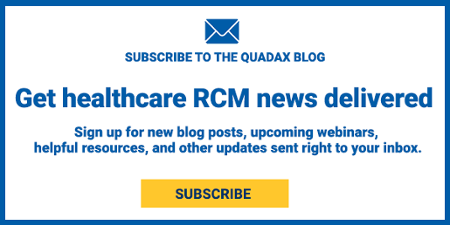An effective denials and contract management strategy mitigates losses.
Given the role that contracts play in healthcare reimbursement, it is not surprising that hospitals and health systems often face revenue leakage due to the complexity and lengthy payment terms involved.
Contract management is an often overlooked aspect of the revenue cycle, yet it plays a crucial role in healthcare reimbursement. Surprisingly, a significant percentage of claims, ranging from 7 to 11%, are underpaid.* This not only has a negative impact on revenue intake but also affects cash flow. Despite the challenges of managing denials and non-payment of claims, many hospitals and health systems tend to prioritize these issues over assessing and managing claims that are paid under contract. Successfully managing contracts requires substantial resources, including budget, time, and personnel.
A Strategic Approach to Contract Management and Revenue Recapture
Healthcare organizations face complex payer contract structures, managing contracts with multiple payers and navigating varying payment terms, insurance types, and procedures. They also deal with frequent contract revisions and lengthy reimbursement cycles.
An efficient approach to contract management involves analyzing contract variations and comparing expected reimbursement to allowed amounts. This enables organizations to identify underpayments, denials, and shortfalls, and take action to prevent revenue leakage.
A best practices approach to contract management and revenue recapture should include:
1. Contract Modeling
Contract modeling serves as the foundation for systems to comprehensively grasp and visualize the essential components of each contract. This phase is pivotal for effectively managing contracts in a practical manner. A successful contract modeling solution must be capable of accommodating diverse types of professional and institutional contracts.
2. Actionable Workflow
To maximize revenue recapture, healthcare organizations should prioritize and route outlier claims for efficient resolution. This can be done by focusing on priority claims before billing, considering expected revenue compared to total charge, or establishing payment variance rules and assessing post-adjudication for the next course of action. This streamlined workflow ensures that all claims are appropriately addressed.
3. Charge Validation
To prevent errors and revenue leakage, healthcare organizations should incorporate chargemaster validation. This allows them to set business rules and identify incorrect fees before claims are submitted, ensuring accurate and timely submissions.
4. Cash Flow Analytics and Variance Reporting
Contract and billing management provides valuable data and insights into cash flow and variance response strategies. A comprehensive solution should include analytics to identify opportunities for improving cash flow and enhance financial performance. By harnessing this data, healthcare organizations can make informed decisions and take proactive measures.
5. Collection and Revenue Recovery
Effectively identifying underpayments and shortfalls is just the first step. To truly resolve these issues, it is critical to have a solution that offers efficient and repeatable actions. When choosing a contract management solution, look for one that provides convenient one-click or mass processing options to help recoup revenue in a seamless and streamlined manner.
Quadax’s use of revenue systems integration and intelligent analytics enables its clients to see, manage and act on leakage issues rapidly and at scale with minimal additional resources. To learn more about how you can pursue revenue recovery with Contract Management by Quadax, schedule a strategy call here.
Let’s take on the revenue cycle together!
*Medical Group Management Association (MGMA) Research


